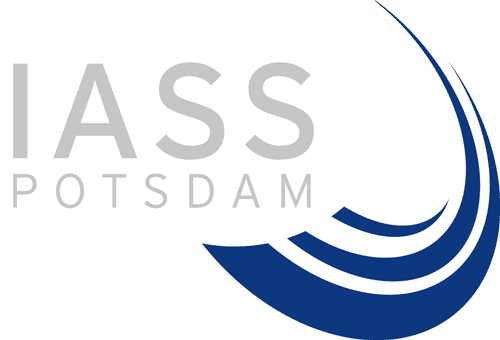Location
The Potsdam Nobel Laureates Symposium “Global Sustainability – A Nobel Cause” brought together internationally renowned scientists and decision-makers under the patronage of German Chancellor Dr Angela Merkel in 2007. The symposium produced the highly regarded Potsdam Memorandum, which calls for a joint effort to tap into “all sources of innovation and invention” to meet the challenges of the twenty-first century. Specifically, it identifies the need for a new “global contract” to increase sustainability in the age of the Anthropocene.
From this starting point, representatives of the German Science Alliance developed a concept for a novel research institute in 2008, from which the Institute for Advanced Sustainability Studies (IASS) emerged. The IASS was officially founded in 2009 as a joint initiative of the German Federal Government, the Federal State of Brandenburg and the research organisations of the German Science Alliance. Potsdam was chosen as the location for the institute due to its excellent research landscape with world-class research institutions such as the Potsdam Institute for Climate Impact Research (PIK) and the Helmholtz Centre Potsdam - GFZ German Research Centre for Geosciences, as well as its close proximity to politics, media and non-governmental organisations in Berlin.
In its research the IASS aims to merge all relevant types of knowledge – both within and outside science – in order to jointly find solutions that help us initiate, support and scientifically accompany the transformation to sustainable development. In accordance with its mission, the IASS involves a wide range of stakeholders from all parts of society in a transdisciplinary process with the goal of developing solutions, and it does not view these stakeholders as mere addressees of the institute’s findings at the end of the research process. Our transdisciplinary research processes are based on excellent disciplinary and interdisciplinary research; at the same time, the questions they raise and the results they produce feed into such research. The IASS does not merely work to create the knowledge needed for action; it also discusses its findings with representatives of politics, industry and civil society and furthers the transformation process through this kind of consultation.
Members:
Resources
Displaying 1 - 5 of 5Governing Tenure Rights to Commons: A guide to support the implementation of the Voluntary Guidelines on the Responsible Governance of Tenure of Land, Fisheries and Forests in the Context of National Food Security
The Voluntary Guidelines on the Responsible Governance of Tenure of Land, Fisheries and Forests in the Context of National Food Security (FAO, 2012 – referred to in this guide as ‘the Guidelines’) were unanimously adopted by the Committee on World Food Security (CFS) in 2012, with subsequent broad international recognition and support. Their strength rests on the unique inclusive and participatory process through which they were developed.
Towards Responsible Land Governance- Strategies for the Implementation of the Tenure Guidelines
Securing Indigenous Peoples and local communities’ land rights is an urgent matter – especially in the light of increasing resource demands and related conflicts. The Voluntary Guidelines on the Responsible Governance of Tenure of Land, Fisheries and Forests (Tenure Guidelines) provide a historic opportunity to recognize and secure tenure rights.
Secure and equitable land rights in the Post- 2015 Agenda: A key issue in the future we want
The Post-2015 Agenda must address the structural factors that undermine sustainable development. It is widely recognised that secure and equitable rights to land and natural resources are central to this effort. Land rights empower people and provide a sense of dignity. They enhance food security and are fundamental to achieve the right to food and increase the productivity of small-scale food producers. They provide an incentive for ecosystem stewardship, and they promote inclusive and equitable societies whilst underpinning cultures and value systems.
Soil atlas: Facts and figures about earth, land and fields.
Without healthy soils, it is not possible to produce healthy food. But soils do not just produce food: they
An ambitious post-2015 development agenda will depend on soils
The sustainable management of soils is crucial to achieving the Sustainable Development Goals. This is evidenced by the analysis of the role soils play across the proposed agenda. However, some key aspects have not been sufficiently considered so far. Moreover, the SDGs will place increased demand on soils. Further advocacy is therefore needed to ensure that important soil and land related issues remain in the final declaration of the post-2015 agenda.




